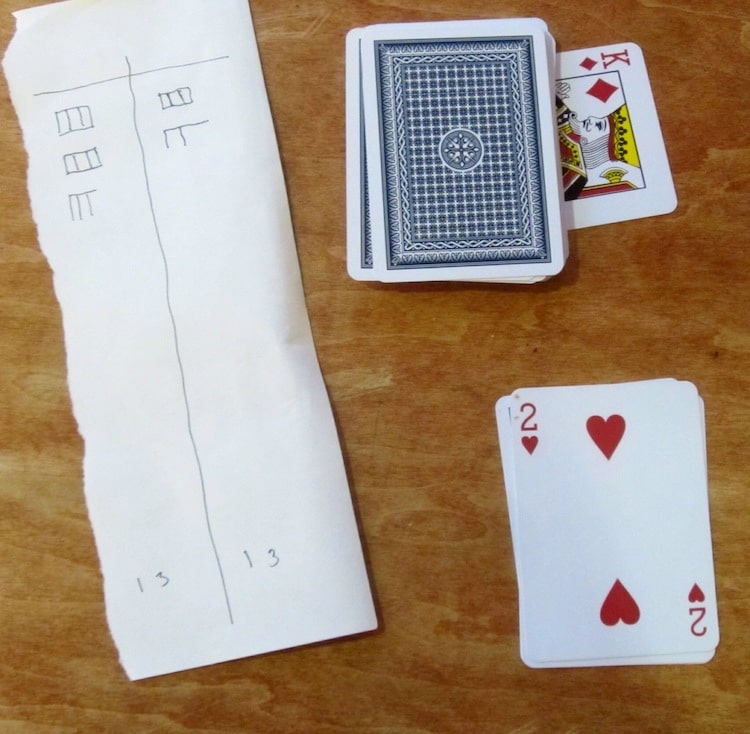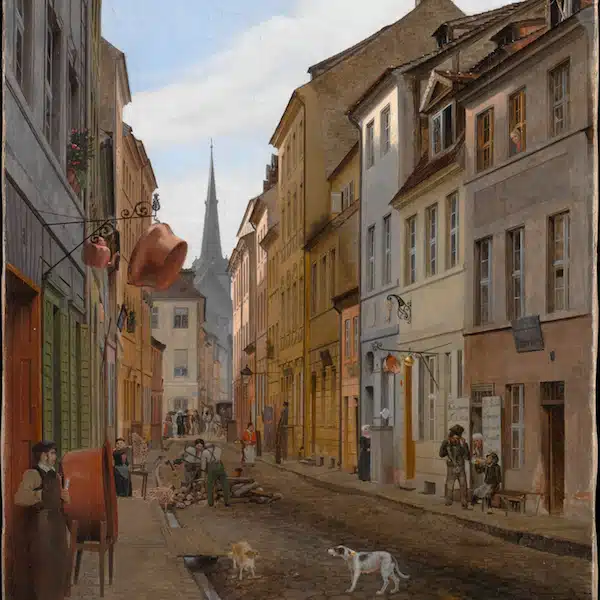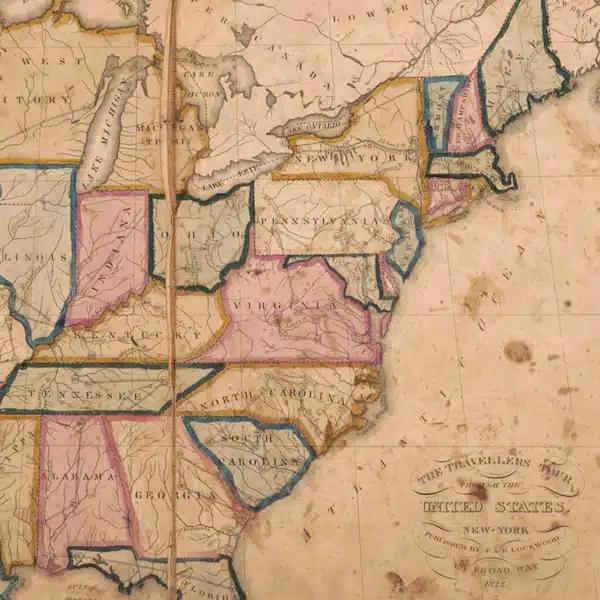
Photo: Stock Photos from IMPACT PHOTOGRAPHY/Shutterstock
Are you looking for your next favorite card game to play with family and friends? Look no further than this list of six exciting, international card games. While it can be daunting to learn a new game, learning and laughing with loved ones is well worth taking the time to build your repertoire of card games. Once you get started, you may be surprised to notice similarities between new games and ones with which you are already familiar.
Card games and their fundamental concepts have spread with human travel through cultures and across oceans. Most games fall within several standard categorizations—trump games, fishing games, trick-taking games, and shedding games.
A Brief History of Card Games
Card games are thought to have originated in China around the year 1000 CE. Often block-printed, early Chinese cards may have been used in addition to other game pieces such as dice. Other early playing cards were found in Mamluk Egypt (the period about 1250-1517). The suits found on Mamluk cards—cups, coins, swords, and polo sticks—influenced the development of Latin cards, the earliest medieval European playing cards. Card games and card decks became popular in the late medieval and Renaissance period, resulting in Germanic variations with new suits such as acorns. A mix of Latin and Germanic suits developed into the well-known French-suited deck now seen globally.
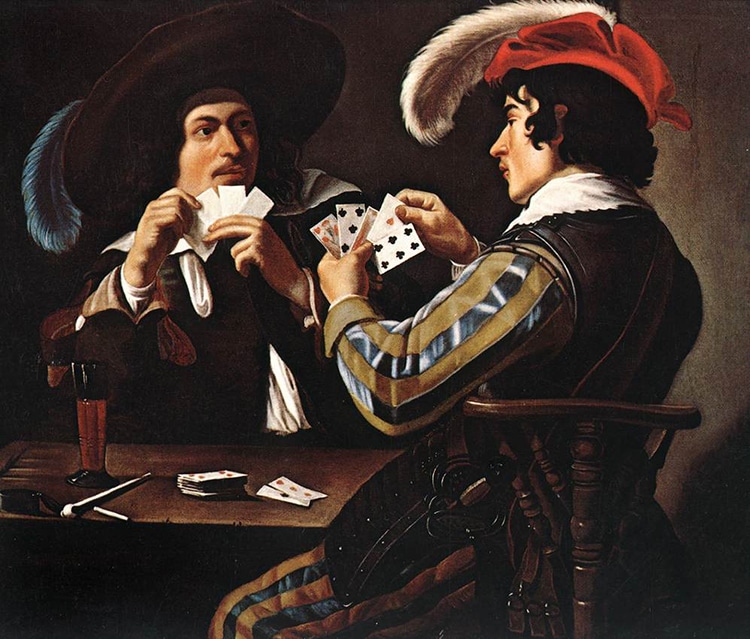
“The Card Players” by Theodoor Rombouts, oil on canvas, early 17th century, Residenzgalerie Salzburg. (Photo: Wikimedia Commons [Public domain])
Types of Card Decks
Most Americans think of card decks as 52 cards in four suits—hearts, diamonds, spades, and clubs. However, this style of card deck is only one of many which are in use internationally. The cards commonly used in America are a French-suited deck. Other suits exist and are called standard patterns. For example, modern Italian card decks have four suits—cups, coins, swords, and clubs (or batons). Italian decks are often stripped decks, meaning the cards number less than 52. Italian decks number 40 cards as the 8s, 9s, and 10s have been removed or are not included. Other decks of cards may be game-specific and lack suits altogether, such as Mexican Lotería cards. Make sure to use the right cards for each game.
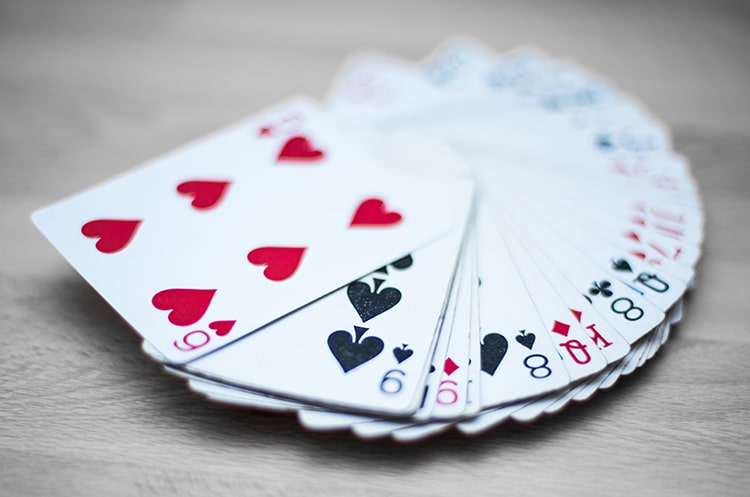
A French suit deck of 52 cards, as most commonly seen in the United States. (Photo: Stock Photos from IAN DIKHTIAR/Shutterstock)
Popular Card Games From Around the World
Lotería, a Mexican game of chance
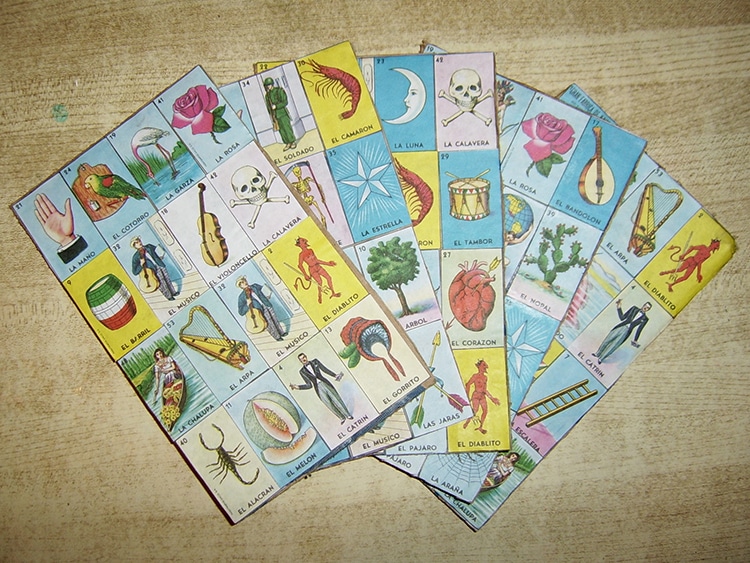
Lotería boards for the classic Mexican card game. (Photo: Wikimedia Commons [Public domain])
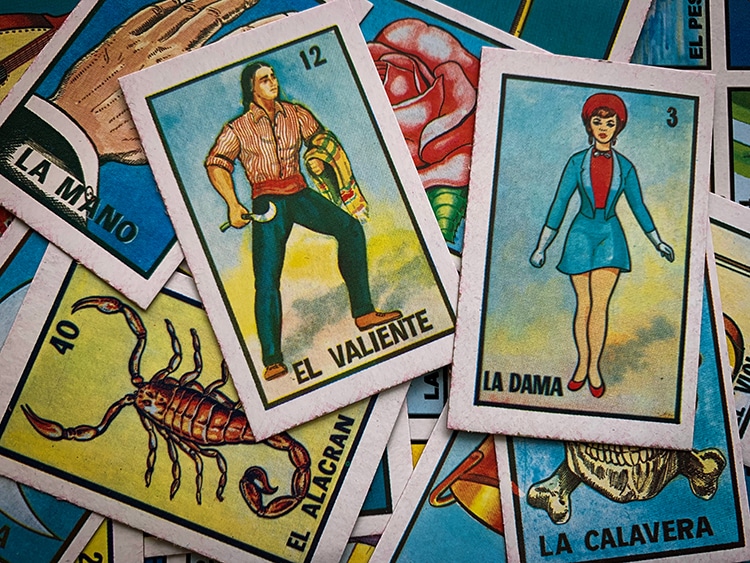
Classic lotería cards. (Photo: Stock Photos from LORENZA OCHOA/Shutterstock)
Racing Demon, an English game of speed
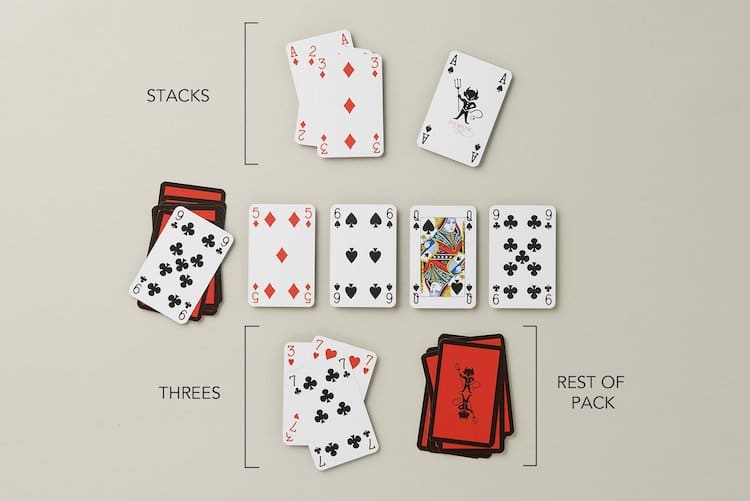
Photo: Demon Playing Cards
This high-speed card game goes by multiple names. First known as Racing Demon when the game emerged in the early 20th century in England, Americans who imported the game called it Nertz or Pounce. To play, each player needs a standard 52-card deck with a unique color or design. Ideal for two to eight players, the goal is for a player to get rid of their deck of cards first. Players do so by communally building in sequence rather like a group game of solitaire. Grab some decks of cards and check out the detailed instructions for this fun game. You can even buy special sets of cards meant for Racing Demon, and (although this is not necessary) it can be stylish.
Pişti, a Turkish fishing game
Pişti (pronounced “pishti”) is a Turkish fishing game. Also played in Cyprus, the game is known as Basra and variations exist throughout Lebanon and the Middle East. Fishing games have the objective of collecting cards under a series of rules. Pişti is played with a standard 52-card deck. Four players discard, trying to match the number of their card to the card below. In this way, a player can capture the discarded cards. A jack allows a player to automatically capture the cards any turn. The captured cards are worth specific point values. To learn more about the scoring and rules, you can find detailed instructions online.
Whist, a trick-taking game for Jane Austen
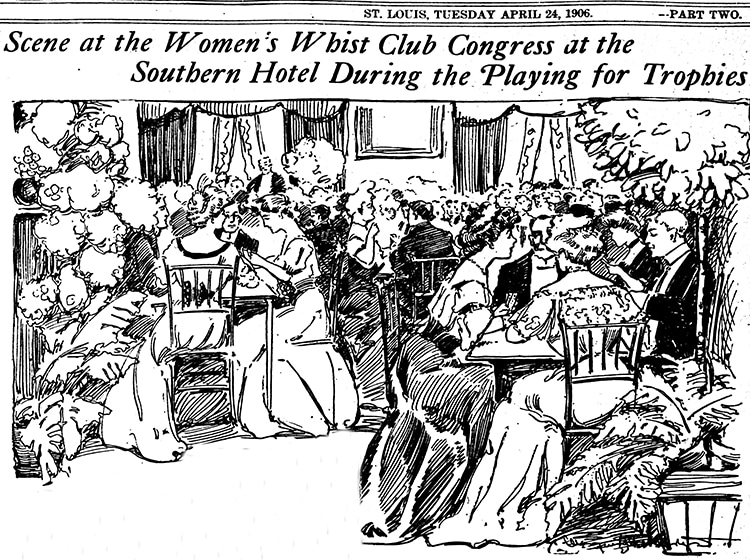
Women's Whist Club Congress, April 1906, at the Southern Hotel, St. Louis. Drawing by Marguerite Martyn, St. Louis Post-Dispatch, April 24, 1906. (Photo: Wikimedia Commons [Public domain])
Briscola, an Italian trick-taking game
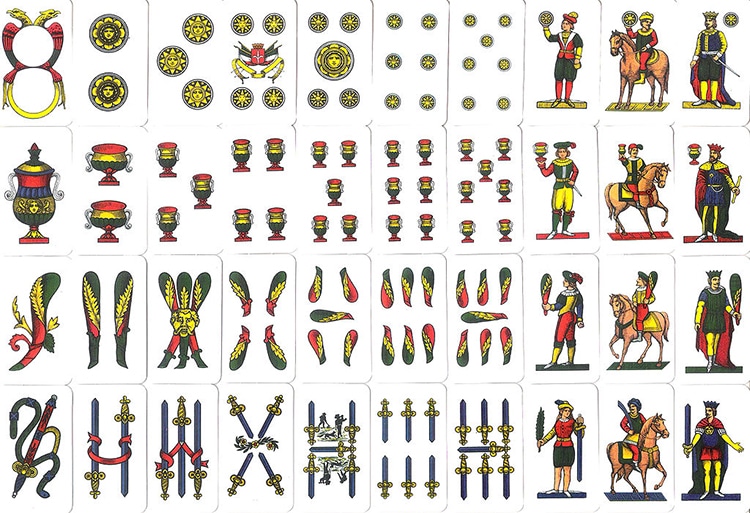
19th century designs of an Italian deck of cards. (Photo: Wikimedia Commons [Public domain])
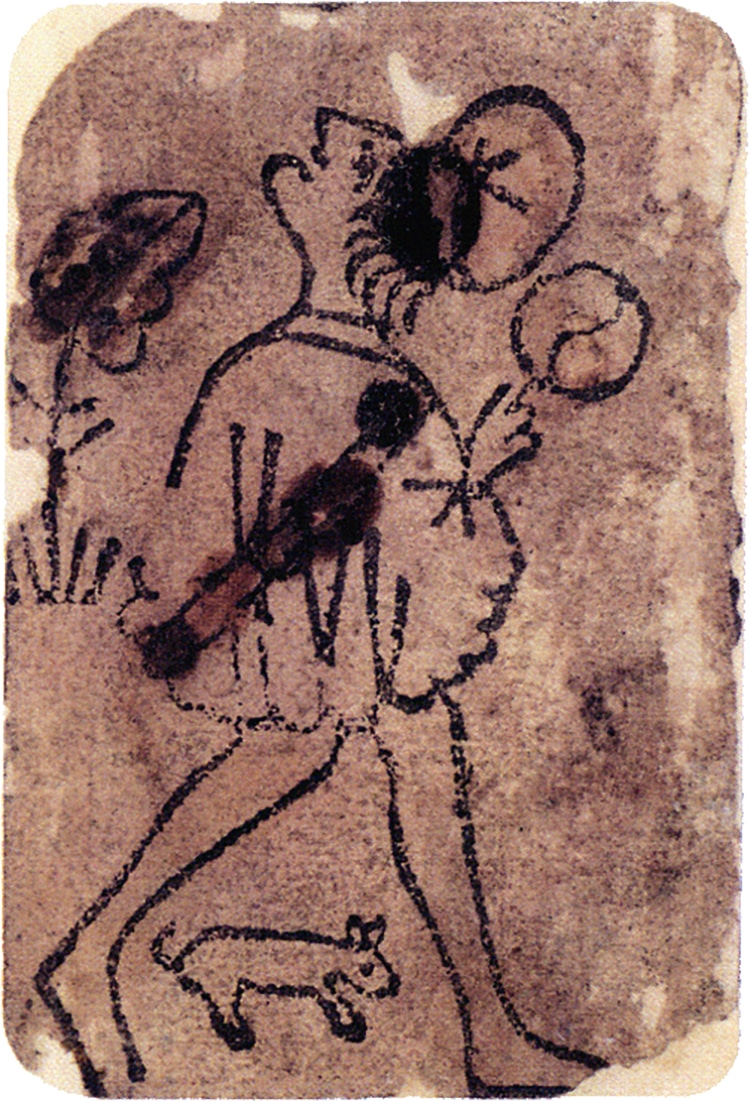
The knave of coins from the earliest known Italian playing cards, produced between 1390 and 1410. (Photo: Wikimedia Commons [Public domain])
Big Two, a Chinese shedding-type game
Big Two (or Deuces) is a shedding-type card game which likely developed in China during the 1980s. Using a standard 52-card deck, the object is to rid oneself of all of one's cards. Cards can be played in certain combinations, including familiar poker combinations such as straights, flushes, and full-houses. The rules are a bit more complex than those of Whist or Lotería, but for poker fans this game is perfect for game night.
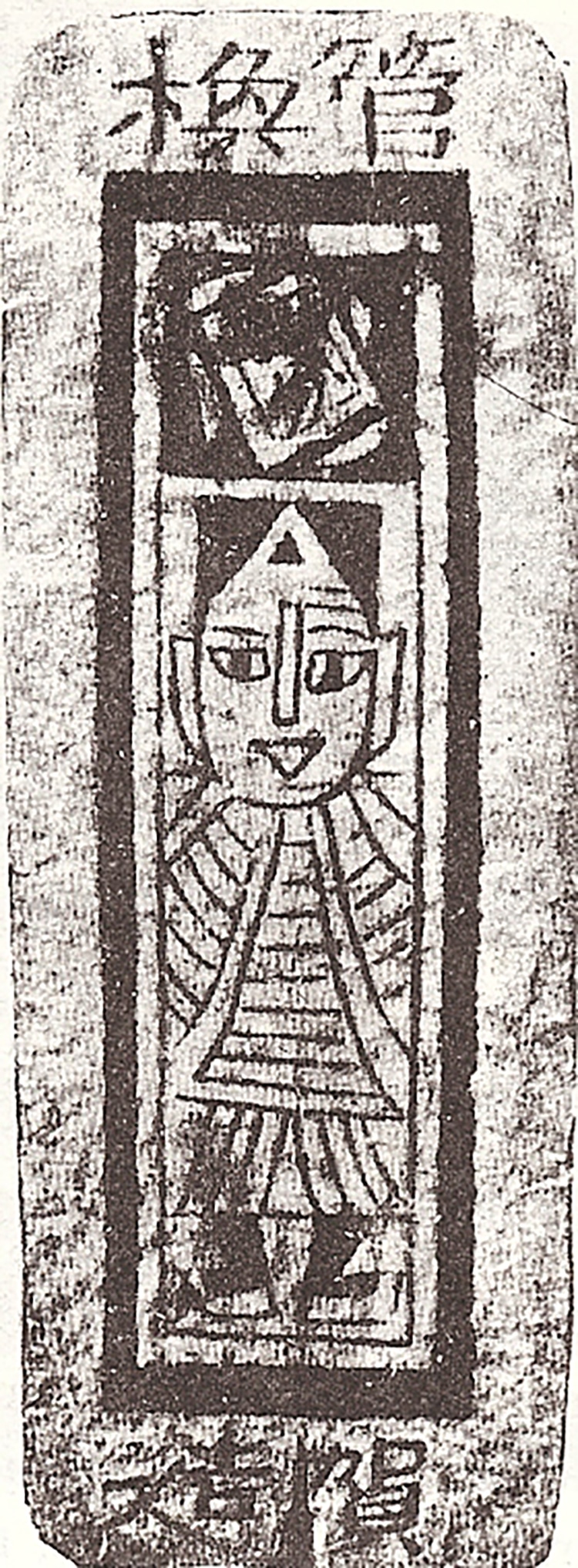
A printed Ming Dynasty playing card, c. 1400. (Photo: Wikimedia Commons [Public domain])
Related Articles:
The Spellbinding History of Tarot Cards, From a Mainstream Card Game to a Magical Ritual
20+ Gifts for Board Game Lovers to Have Hours of Wholesome Fun
How Did Jigsaw Puzzles Became a Popular Pastime?
This Ingenious Card Deck Includes Photography Tips Fit for a King or Queen
